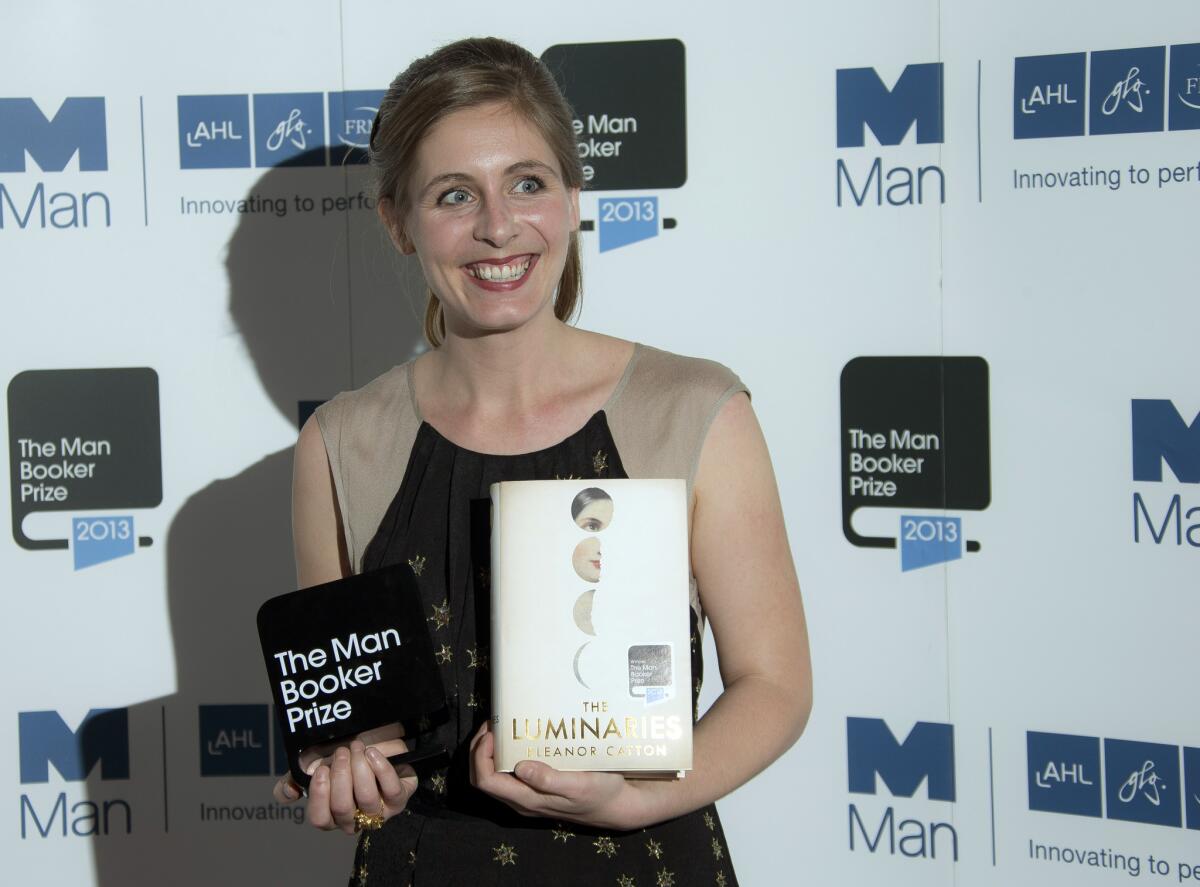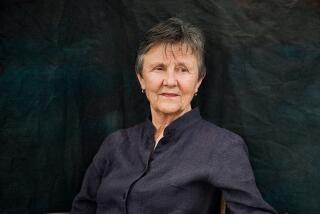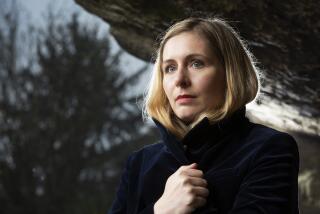Man Booker Prize winner Eleanor Catton targets literary sexism

- Share via
Running on a mere 2½ hours of sleep and exactly 12 hours after winning the Man Booker Prize for her novel “The Luminaries,” Eleanor Catton sat down for an interview with the Guardian’s Charlotte Higgins and brought her A game.
The 28-year-old novelist from New Zealand, the youngest ever to win the prize, addressed the critics who have approached her complex novel with trite assumptions about gender.
Catton said the “people whose negative reaction [to ‘The Luminaries’] has been most vehement have all been men over about 45.” She went on to say that there seems to be a misconception by some men of a certain generation that her gender and relative youth have bearing on the book -- more than 800 pages long -- itself. There is, she said, “a sense of irritation from some critics -- that I have been so audacious to have taken up people’s time by writing a long book. There’s a sense in there of: ‘Who do you think you are? You can’t do that.’ ”
Other young women whose literary achievements have catapulted them into the spotlight have faced similar biases. In 2000, Zadie Smith, whose first book, “White Teeth”, was published when she was 25, was dubbed an international “Girl Wonder.”
“I have observed that male writers tend to get asked what they think and women what they feel,” Catton says. “In my experience, and that of a lot of other women writers, all of the questions coming at them from interviewers tend to be about how lucky they are to be where they are -- about luck and identity and how the idea struck them. The interviews much more seldom engage with the woman as a serious thinker, a philosopher, as a person with preoccupations that are going to sustain them for their lifetime.”
Her comments echo the minor storm that followed a Publisher’s Weekly interview with Claire Messud earlier this year in which the author was asked about the likability of the protagonist of “The Woman Upstairs.” Messud’s startled reply, which included a list of indelible, unlikable male literary characters (Humbert Humbert, Hamlet and Oscar Wao), sparked a discussion of the different expectations put on male and female writers and the characters they create.
“The Luminaries” is the longest book to win the Man Booker; Catton, the prize’s youngest winner, has created a work of complexity her critics didn’t expect. She told the Guardian, “There’s a feeling of: ‘All right, we can tolerate [this] from a man over 50, but we are not going to be spoken to like that by you.’ ”
ALSO:
PEN’s Joan Didion event only lacked Joan Didion
Listening to Gregory Rabassa, the translator’s translator
Self-published pornographic e-books cause trouble for Amazon, Kobo
More to Read
Sign up for our Book Club newsletter
Get the latest news, events and more from the Los Angeles Times Book Club, and help us get L.A. reading and talking.
You may occasionally receive promotional content from the Los Angeles Times.









